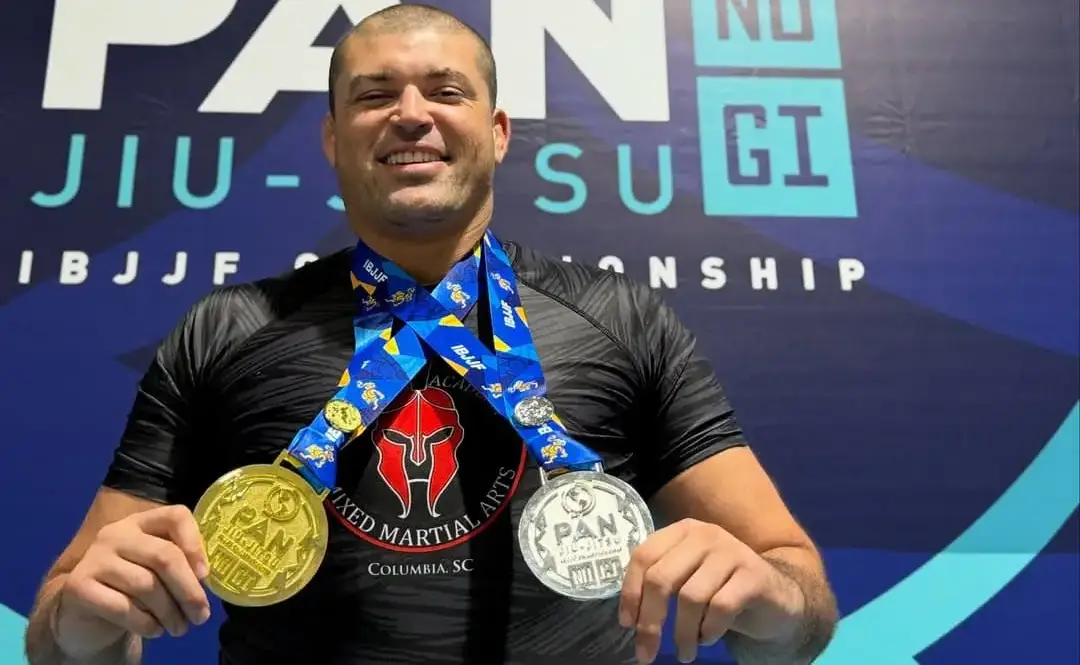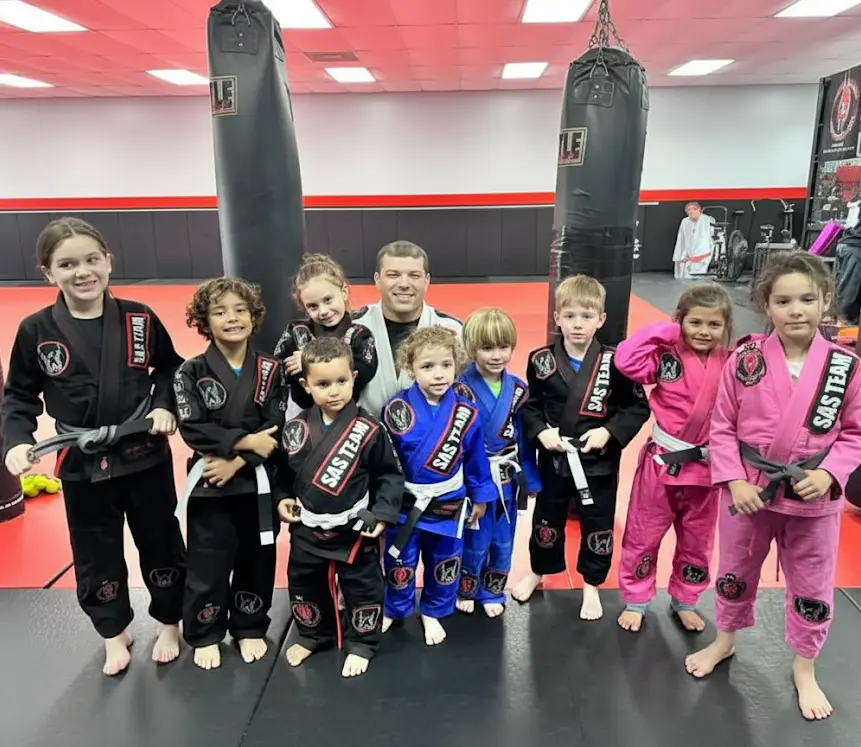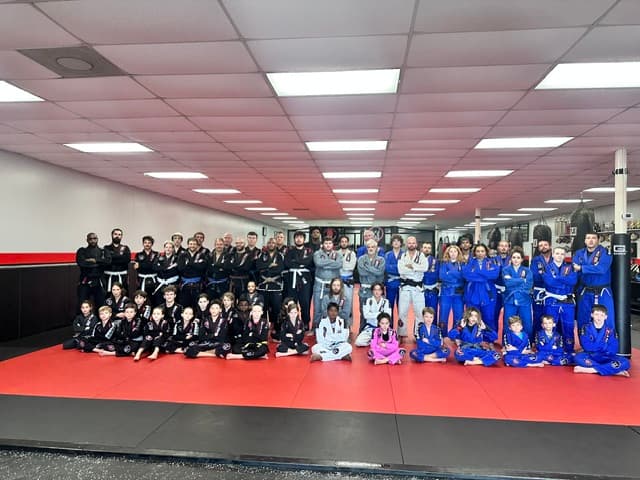Are you ready to uncover the truth about Brazilian Jiu-Jitsu (BJJ) and its effectiveness for self-defense? It’s important to approach this topic with a critical eye and separate fact from fiction. Many enthusiasts claim that BJJ is beneficial for self-defense, but is it really true? Let’s check if it truly holds up in real-world situations.
BJJ is a martial art that focuses on grappling and ground fighting. It emphasizes technique and leverage rather than relying on strength and size. This can be advantageous in self-defense scenarios, as it allows a smaller individual to defend themselves against a larger attacker. BJJ practitioners learn various techniques, such as submissions, escapes, and control holds, which can be useful in real-life altercations.
One of the key aspects of BJJ that makes it effective for self-defense is its emphasis on realistic training. BJJ practitioners regularly engage in live sparring, known as rolling, where they apply their techniques against resisting opponents. This type of training helps them develop the skills and instincts necessary to handle the unpredictability of real-world self-defense situations. It also builds confidence and mental resilience, which are crucial in high-pressure situations.
Another advantage of BJJ for self-defense is its focus on controlling and neutralizing an attacker without causing significant harm. This is especially important in situations where the goal is to protect oneself rather than escalate the violence. BJJ techniques allow practitioners to subdue an attacker without resorting to excessive force, which can help de-escalate a potentially dangerous situation.
However, it’s important to note that while BJJ can be effective for self-defense, it is not a guarantee of safety in every situation. Self-defense is a complex and multifaceted subject, and there are many factors to consider, such as the environment, the number of attackers, and the presence of weapons. BJJ should be seen as a valuable tool in a larger self-defense toolkit, rather than a standalone solution.
Jiu Jitsu can be a valuable asset for self-defense due to its focus on technique, realistic training, and the ability to control and neutralize attackers. It provides practitioners with the skills, confidence, and mental resilience to handle real-world situations effectively. However, it’s important to supplement BJJ training with a comprehensive understanding of self-defense principles and strategies. Remember, self-defense is a holistic approach that requires a combination of physical skills, situational awareness, and good decision-making.
Table of Contents
ToggleBJJ Techniques for Real-Life Self Defense
BJJ techniques for real-life self-defense are all about using control and submissions to effectively deal with threats.
Brazilian Jiu Jitsu, also known as BJJ, is a martial art that focuses on practical self-defense techniques.
In real-life situations, it’s important to have techniques that actually work against opponents who are resisting.
BJJ provides a range of techniques that allow practitioners to control and subdue their attackers, regardless of differences in size or strength. These techniques include escapes, submissions like arm bars and triangle chokes, and takedowns to gain control over opponents.
BJJ training also incorporates real-world scenarios, which helps practitioners develop situational awareness and learn how to adapt their techniques for street confrontations.
Training Methods: How BJJ Prepares You for Self Defense
When it comes to preparing for self-defense, Brazilian Jiu Jitsu (BJJ) training methods are highly effective in equipping individuals with the necessary skills and techniques. BJJ training instills discipline and mental resilience, which are essential qualities in self-defense situations.
Here’s how BJJ prepares you for self-defense:
- Focus on leverage and technique: In BJJ, you learn how to use your opponent’s strength against them. This means that even if you’re facing a larger opponent, you can defend yourself by utilizing proper leverage and technique.
- Ground fighting and submission techniques: BJJ places a strong emphasis on ground fighting, which is where many real-life altercations end up. By learning submission techniques, you gain the ability to immobilize and control your attacker, giving you the upper hand in a self-defense situation.
- Real-world scenarios and adaptability: BJJ training goes beyond just learning techniques. It also incorporates real-world scenarios, situational awareness, and adaptability. This prepares you to handle various self-defense situations effectively and make split-second decisions based on the specific circumstances you find yourself in.
Effectiveness of BJJ in Different Self Defense Scenarios
Brazilian Jiu Jitsu (BJJ) is highly effective in various self-defense scenarios due to its practicality and adaptability. BJJ’s emphasis on ground fighting and submissions makes it particularly useful in close-quarters situations. It enables individuals of smaller stature to defend themselves against larger opponents by neutralizing the advantage of size and strength.
BJJ techniques such as escapes, submissions, and takedowns are crucial for gaining control and incapacitating adversaries, allowing practitioners to effectively protect themselves. Also, BJJ training goes beyond physical techniques, promoting situational awareness and the ability to assess and avoid potential threats in real-world situations.
Even with minimal training, BJJ practitioners can possess more advanced skills compared to untrained individuals, making it a practical choice for self-defense. Therefore, the effectiveness of BJJ remains consistent across different self-defense scenarios.
Common Misconceptions About BJJ and Self Defense
Many people have a misconception about Brazilian Jiu Jitsu (BJJ) and its effectiveness in self-defense. They believe that BJJ only focuses on ground fighting and submissions, neglecting other important aspects of self-defense. However, this isn’t true at all. BJJ training actually encompasses a wide range of techniques, including stand-up moves, takedowns, and self-defense principles. So, it’s not just about what happens on the ground.
While BJJ can be highly effective in many self-defense situations, it’s important to understand its limitations. BJJ may not adequately address scenarios involving multiple attackers or armed assailants. In such situations, additional self-defense training that covers these specific scenarios is necessary. It’s crucial to have a well-rounded skill set that goes beyond BJJ.
Furthermore, it’s essential to recognize that proficiency in BJJ doesn’t guarantee safety in all real-life confrontations. Situational awareness and de-escalation skills play a vital role in self-defense. Knowing how to recognize and avoid dangerous situations is just as important as knowing how to defend yourself physically.
Taking a holistic approach to self-defense is key. This means considering legal and ethical considerations as well. Self-defense isn’t just about physical techniques; it’s about understanding the laws and regulations surrounding self-defense and ensuring you act within those boundaries.
Integrating BJJ With Other Self Defense Systems
Integrating Brazilian Jiu-Jitsu (BJJ) with other self-defense systems can greatly enhance your ability to protect yourself in real-world situations. By combining BJJ with striking arts like Muay Thai or Kickboxing, you can develop a versatile skill set that includes both ground fighting and stand-up techniques. This mixed martial arts approach allows you to adapt to different scenarios and engage with opponents at various ranges.
In addition, integrating BJJ with traditional Japanese arts such as Judo or wrestling can improve your takedown proficiency and adaptability in self-defense situations. These martial arts focus on throws, sweeps, and takedowns, which can be highly effective in neutralizing an attacker and creating opportunities for escape or control.
Conclusion on If BJJ is Good for Self-defense
So we can conclude that BJJ can definitely be a valuable tool for self-defense. It teaches practical techniques and provides effective training methods that can be applied in real-life situations. However, it’s important to understand that self-defense goes beyond just physical techniques. It involves being aware of your surroundings, avoiding dangerous situations, and knowing how to de-escalate conflicts.
That being said, integrating BJJ with other self-defense systems can further enhance your preparedness in real-life scenarios. By combining BJJ with awareness, avoidance, and de-escalation strategies, you can develop a well-rounded approach to self-defense.
If you’re interested in learning BJJ and other martial arts, come and visit Spartan Academy MMA. Located in Columbia, South Carolina, Spartan Academy MMA offers classes in Brazilian Jiu Jitsu, Muay Thai, Kickboxing for all ages and levels, and MMA for children and teenagers.
Spartan Academy offers a free trial class, so you can see if it’s the right fit for you.









